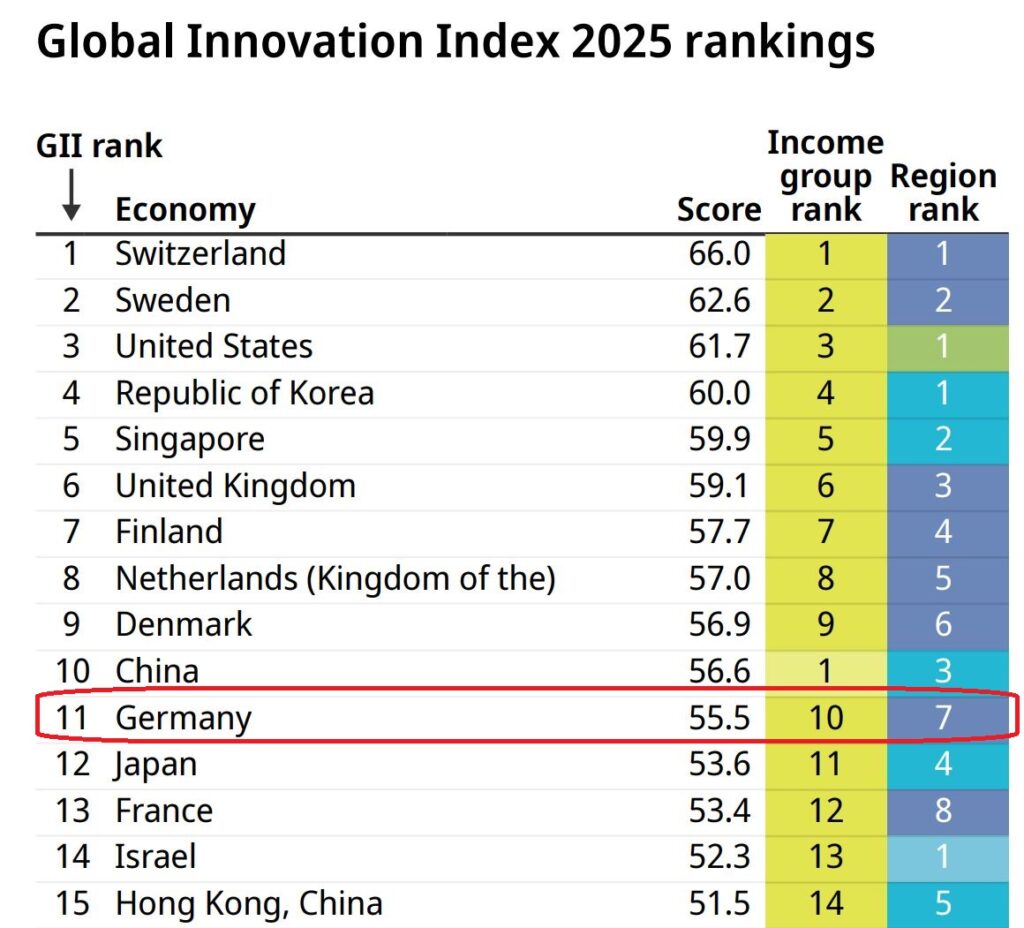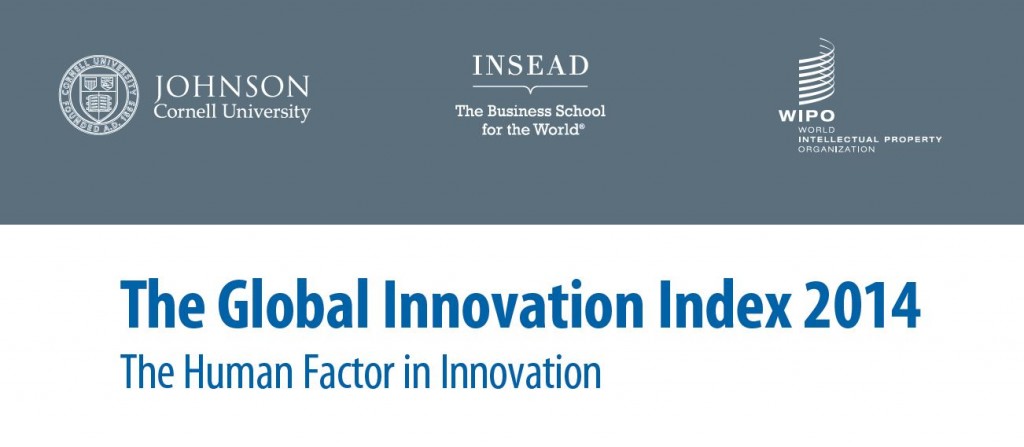
Der aktuelle Global Innovation Index 2025 zeigt, dass Deutschland im Ranking nicht mehr zu den TOP 10 zählt (Abbildung). Im internationalen Vergleich rutscht Deutschland etwas ab. Im Global Innovation Index 2017 war Deutschland im Vergleich zu 2016 einen Platz nach oben gerutscht, und belegte immerhin Platz 9.
Schon 2010 hatte ich in einem Blogbeitrag etwas zynisch angemerkt, dass wir in Deutschland mehr Innovationspreise als wirkliche Innovationen haben.
Vergleichen wir uns in Deutschland mit anderen Ländern in der EU, oder mit den eigenen Innovations-Kennzahlen der vergangenen Jahre, sieht es dagegen immer noch recht gut aus. Es ist halt immer die Frage, welche Zahlen ich heranziehe, um die Innovationskraft eines Landes zu bewerten. Es ist eben – frei nach Einstein – alles relativ.
Ein wichtiges Kriterium in unseren Regionen ist das Europäische Paradox. Gemeint ist, dass wir in Europa recht viel Geld in die Forschung stecken, doch im Verhältnis dazu recht wenige Innovationen generieren. Siehe dazu Produkte und Dienstleistungen als Mehrwert für Kunden: Warum funktioniert das einfach nicht?
Doch was können wir tun, um diese Entwicklung zu korrigieren?
In Zeiten von Künstlicher Intelligenz beispielsweise sollte es darum gehen, die bisher nicht erfüllten Bedürfnisse von Menschen endlich in den Mittelpunkt zu stellen, und geeignete Produkte und Dienstleistungen auf den Markt zu bringen.
“There is still an invisible hand behind supply-side reform. Adam Smith argued that the invisible hand that drives markets is capital, while the invisible hand of supply that drives innovation is demand. Generally speaking, the “inconvenience” in the daily life of the people can be used as the traction of technological development. In the AI technology market, enterprises that see fundamental needs can have a large number of applications for their products” (Wu 2025).



